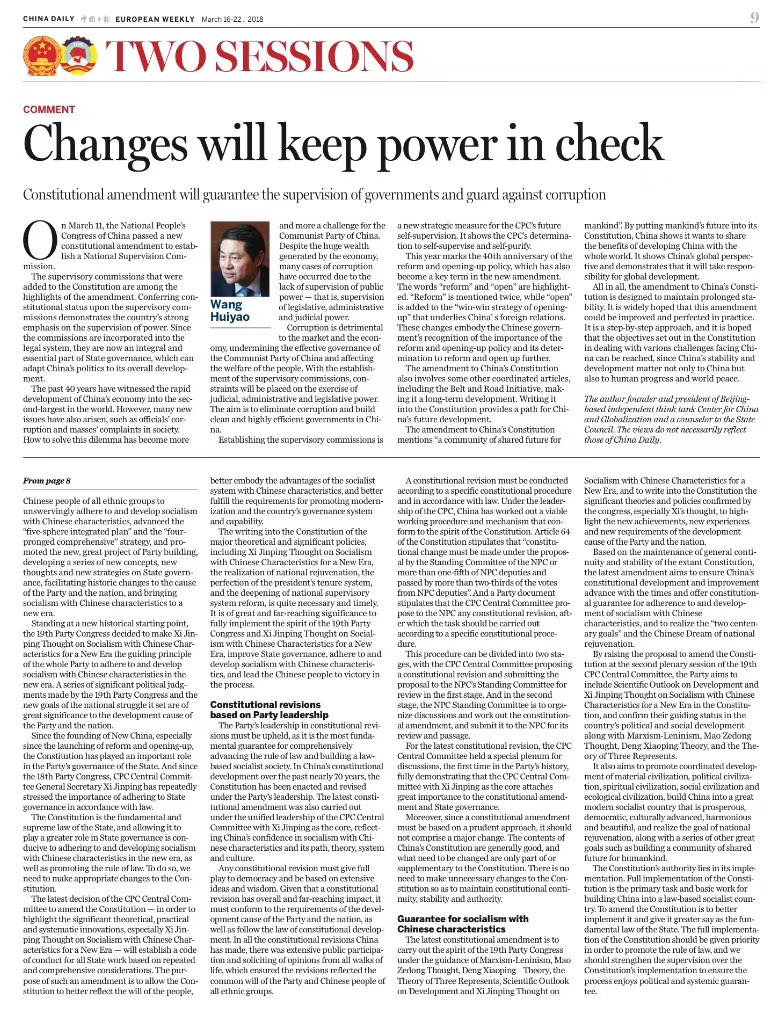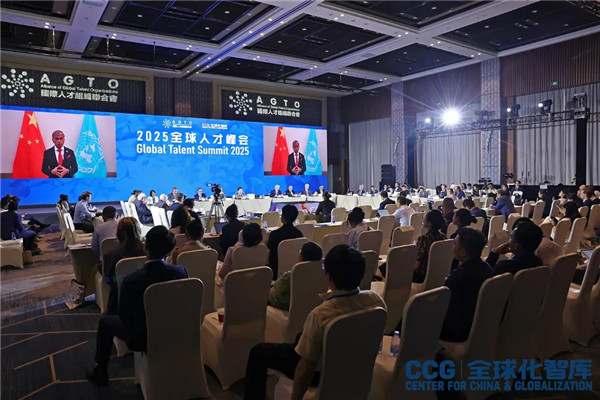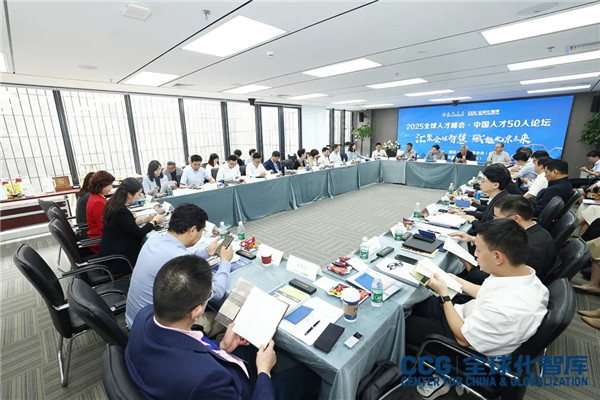China Daily | Wang Huiyao: Changes will keep power in check
2018年3月19日
Constitutional amendment will guarantee the supervision of governments and guard against corruption
On March 11, the National People’s Congress of China passed a new constitutional amendment to establish a National Supervision Commission.
The supervisory commissions that were added to the Constitution are among the highlights of the amendment. Conferring constitutional status upon the supervisory commissions demonstrates the country’s strong emphasis on the supervision of power. Since the commissions are incorporated into the legal system, they are now an integral and essential part of State governance, which can adapt China’s politics to its overall development.
The past 40 years have witnessed the rapid development of China’s economy into the second-largest in the world. However, many new issues have also arisen, such as officials’ corruption and masses’ complaints in society. How to solve this dilemma has become more and more a challenge for the Communist Party of China. Despite the huge wealth generated by the economy, many cases of corruption have occurred due to the lack of supervision of public power – that is, supervision of legislative, administrative and judicial power.
Corruption is detrimental to the market and the economy, undermining the effective governance of the Communist Party of China and affecting the welfare of the people. With the establishment of the supervisory commissions, constraints will be placed on the exercise of judicial, administrative and legislative power. The aim is to eliminate corruption and build clean and highly efficient governments in China.
Establishing the supervisory commissions is a new strategic measure for the CPC’s future self-supervision. It shows the CPC’s determination to self-supervise and self-purify.
This year marks the 40th anniversary of the reform and opening-up policy, which has also become a key term in the new amendment. The words "reform" and "open" are highlighted. "Reform" is mentioned twice, while "open" is added to the "win-win strategy of opening-up" that underlies China’ s foreign relations. These changes embody the Chinese government’s recognition of the importance of the reform and opening-up policy and its determination to reform and open up further.
The amendment to China’s Constitution also involves some other coordinated articles, including the Belt and Road Initiative, making it a long-term development. Writing it into the Constitution provides a path for China’s future development.
The amendment to China’s Constitution mentions "a community of shared future for mankind". By putting mankind’s future into its Constitution, China shows it wants to share the benefits of developing China with the whole world. It shows China’s global perspective and demonstrates that it will take responsibility for global development.
All in all, the amendment to China’s Constitution is designed to maintain prolonged stability. It is widely hoped that this amendment could be improved and perfected in practice. It is a step-by-step approach, and it is hoped that the objectives set out in the Constitution in dealing with various challenges facing China can be reached, since China’s stability and development matter not only to China but also to human progress and world peace.

Dr. Wang Huiyao, president of the Center for China and Globalization(CCG), an independent think tank based in Beijing.
From China Daily,2018-3-16







